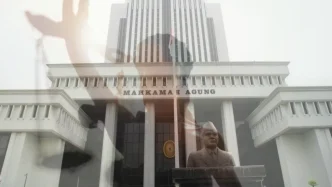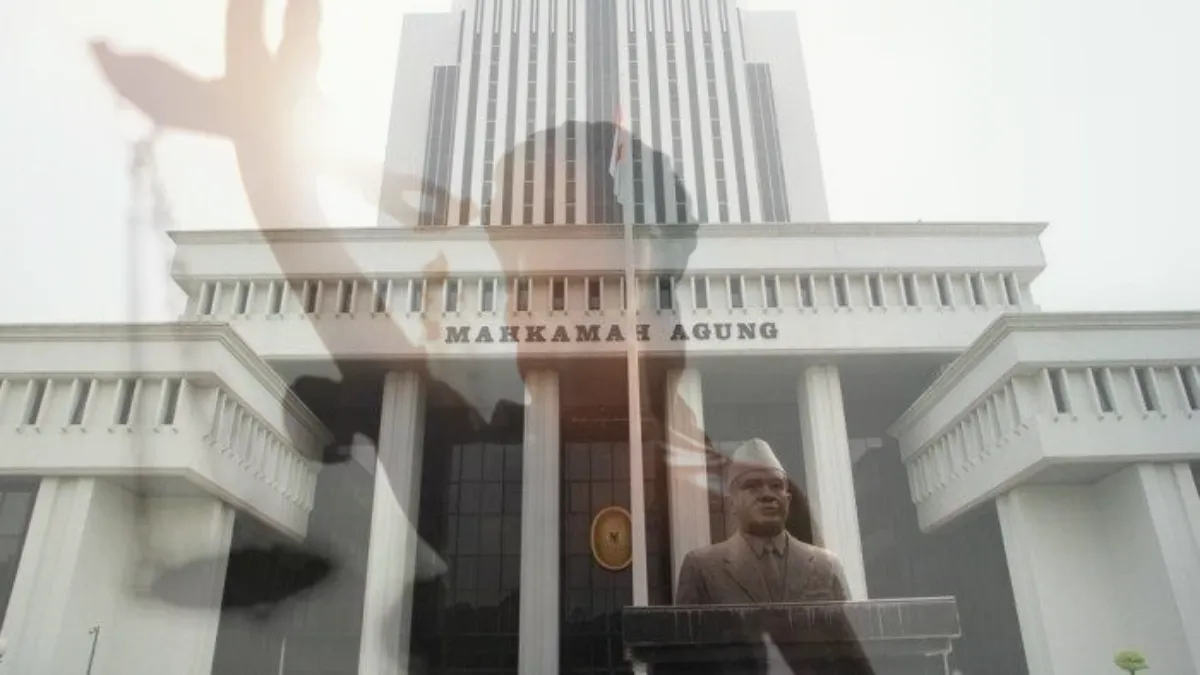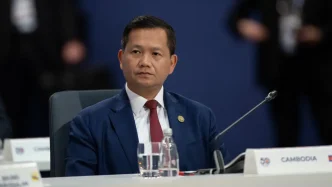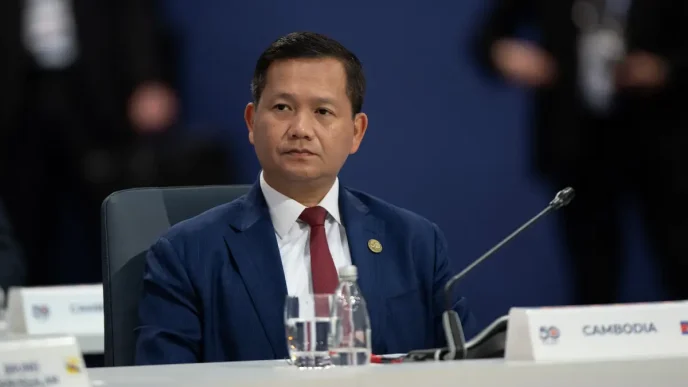A 32-year-old man from North Sumatra has been sentenced to 1.5 years in prison for stealing a pair of luxury sandals, igniting a firestorm of public criticism over perceived inequalities in Indonesia’s justice system. The case of Nefri Zaldi, convicted of taking Hermes sandals worth Rp 15 million (~US$916) from his former employer, has drawn sharp comparisons to lighter penalties handed to public officials embroiled in corruption scandals involving millions of dollars, raising questions about fairness and the treatment of the poor versus the elite.
A Harsh Sentence for a Minor Crime
In a verdict delivered on July 29, 2025, at the Medan District Court, Nefri Zaldi was found guilty of theft after admitting to stealing the sandals from the home of his former employer, Siwaji Raja, on December 28, 2024. According to court records, Nefri took the item while leaving Siwaji’s residence alongside a friend, Andika Gumtom, who later confirmed witnessing the act. Siwaji reported the theft after being informed of the loss, leading to Nefri’s arrest on March 21, 2025.
Presiding Judge Sarma Siregar acknowledged Nefri’s clean criminal record as a mitigating factor but emphasized that his actions caused financial harm to the victim and disrupted public order. Despite the prosecution seeking a two-year sentence, the court settled on 1.5 years. Nefri, who represented himself during the trial, expressed remorse and pleaded for leniency, citing his role as the sole breadwinner for his family. He has yet to decide on an appeal.
Deny Marincka, Head of the General Crimes Unit at the Medan District Attorney’s Office, defended the sentence, arguing that the financial loss to the victim was significant. Speaking to local media on August 2, 2025, he noted that sentences for theft often reflect the value of stolen goods, drawing a parallel to motorcycle thefts where culprits receive similar penalties despite the items sometimes being worth less than luxury sandals. He acknowledged public sympathy for Nefri’s case but described the sentencing dilemma as a recurring challenge for prosecutors, who are also considering whether to appeal the verdict on humanitarian grounds.
Public Backlash and Social Media Fury
The sentencing has sparked widespread outrage among Indonesians, many of whom see it as emblematic of a justice system that disproportionately punishes the poor while letting corrupt elites off lightly. On social media platforms, netizens have voiced frustration, pointing to numerous cases where public officials convicted of embezzling vast sums of state funds received sentences equal to or shorter than Nefri’s.
The disparity has fueled a broader debate about systemic inequality. While Nefri faces 1.5 years behind bars for a relatively minor theft, recent cases involving graft have seen officials walk away with minimal consequences. For instance, in July 2025, seven officials in Bintan Regency, Riau Islands, were each sentenced to just one year in prison for embezzling Rp 860 million (~US$52,500) in tourist entrance fees over several years. Similarly, in May 2025, a civil servant in East Kalimantan received a one-year sentence and a fine of Rp 50 million (~US$3,050) for falsifying salary records and misappropriating Rp 1.2 billion (~US$73,200). Even more striking, in September 2024, the former head of the South Sumatran Office of the Indonesian Sports Council (KONI) was sentenced to one year for embezzling Rp 3.4 billion (~US$207,400) through fabricated events.
These cases, widely reported in local media, have intensified public perception that the justice system prioritizes petty crimes over systemic corruption, undermining trust in legal institutions. Many argue that the financial and societal damage caused by graft far outweighs the impact of individual thefts like Nefri’s, yet the penalties do not reflect this reality.
Expert Analysis: A Crisis of Public Trust
Zaenur Rohman, a researcher at the Gadjah Mada University Center for Anti-Corruption Studies (Pukat UGM), weighed in on the controversy, highlighting the disconnect between legal sentencing and public perceptions of justice. In comments made to local press on August 5, 2025, he noted that while Nefri’s sentence aligns with the criminal code’s provisions for theft, it fails to satisfy a broader sense of fairness. He argued that such disparities erode public trust and diminish the deterrent effect of penalties for corruption.
Rohman proposed a shift in approach, suggesting that penalties for graft should focus less on prison time and more on financial repercussions. He advocated for higher fines and asset confiscation as mechanisms to ensure corrupt officials face consequences proportional to their crimes. Such reforms, he suggested, might require amendments to Indonesia’s Corruption Eradication Law to prioritize restitution over incarceration in cases of systemic abuse.
This perspective resonates with a growing chorus of voices calling for systemic change. Legal experts and activists alike have long criticized Indonesia’s judicial framework for its leniency toward white-collar crime, particularly when contrasted with harsh penalties for minor offenses committed by economically disadvantaged individuals. The case of Nefri Zaldi has become a lightning rod for these frustrations, encapsulating the broader struggle for equitable justice.
Historical Context: A Pattern of Disparity
The issue of unequal sentencing is not new in Indonesia, where the justice system has often been accused of favoring the powerful. Over the past decade, high-profile corruption scandals have frequently resulted in minimal penalties, even as small-scale offenders face significant jail time. This pattern has been documented in numerous reports by local and international watchdogs, which point to systemic issues including judicial corruption, inadequate legal representation for the poor, and a lack of political will to enact meaningful reform.
For many Indonesians, Nefri’s case is a stark reminder of these entrenched inequalities. The fact that he faced trial without a lawyer underscores the barriers to accessing justice for those without financial means. Legal aid services in Indonesia remain underfunded and overstretched, often leaving defendants like Nefri to navigate complex proceedings alone. This structural disadvantage compounds the perception that the system is rigged against the powerless.
Political and Social Implications
The public outcry over Nefri’s sentencing comes at a time of heightened sensitivity to issues of inequality in Indonesia. With economic disparities widening in the wake of global inflationary pressures and uneven post-pandemic recovery, many citizens are increasingly vocal about perceived injustices. The contrast between Nefri’s punishment and the treatment of corrupt officials has struck a nerve, amplifying calls for reform from civil society groups and opposition politicians.
Moreover, the case has reignited discussions about the role of the judiciary in addressing corruption, a persistent challenge for Indonesia despite decades of reform efforts following the fall of the Suharto regime in 1998. While institutions like the Corruption Eradication Commission (KPK) have made strides in prosecuting high-profile cases, critics argue that sentencing remains inconsistent and often fails to reflect the scale of harm caused by graft.
Some observers suggest that the government could seize this moment to push for legislative changes, such as those proposed by Zaenur Rohman. However, others caution that meaningful reform will require addressing deeper issues of judicial independence and accountability—challenges that have plagued Indonesia’s legal system for generations.
Looking Ahead: A Test for Indonesia’s Justice System
As Nefri Zaldi contemplates an appeal and prosecutors weigh their next steps, his case continues to reverberate across Indonesia. It has become more than a story of a stolen pair of sandals; it is a symbol of a justice system grappling with questions of fairness, equity, and public trust. For many, the disparity in sentencing between petty theft and large-scale corruption underscores a fundamental imbalance that must be addressed if the judiciary is to retain legitimacy in the eyes of ordinary citizens.
Whether this public outcry will translate into tangible change remains uncertain. As debates over legal reform intensify, the plight of individuals like Nefri serves as a poignant reminder of the human cost of systemic inequality. The path forward for Indonesia’s justice system is fraught with challenges, but the voices of the public—amplified through social media and street protests—suggest that the demand for fairness will not be easily silenced.
















